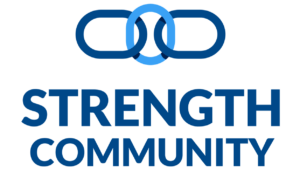This article summarizes a conversation between Carlos Castro and Tony Parra, both internationally renowned strength coaches with experience in a wide variety of sports.
The discussion focuses on the importance of strength training for sports performance, the challenges faced by strength coaches, and strategies to maximize athletes' potential.
Key Subjects and Ideas:
The Impact of Strength Training (Done Right and Wrong)
The bottom line is that strength training, when applied correctly, can significantly improve athletic performance and prolong an athlete's career. However, poorly designed training can ruin an athlete's career.
When Athletes Seek Strength Training:
Athletes often seek out strength coaches when they are dealing with injuries, plateauing in their progress, or need an extra "push" to compete at a higher level.
The Main Problem in the Strength Coaching Community:
A common problem is a lack of structure and a desire to get “too fancy” too quickly rather than focusing on the basic fundamentals. This includes a lack of in-depth knowledge in areas such as biomechanics, periodization, and how to convert strength into power.
The Priority: Injury Prevention:
Both coaches emphasize that injury prevention is the most important priority. Avoiding injuries gives athletes more training time and, therefore, improves their game.
The Importance of Structure and Planning:
Creating a structure and a detailed plan is essential. However, it is also important to be flexible and adaptable, as circumstances can change at any time.
Getting Started with an Athlete:
Start with an interview to understand the athlete’s goals and establish a schedule. Then, conduct the necessary assessments and tests to determine the athlete’s strengths, weaknesses, and imbalances.
Importance of Constant Feedback:
Constant feedback from the athlete is crucial to fine-tuning the training program. This includes progress monitoring, pain management, and evaluating on-field results.
Common Challenges with Head Coaches:
A common challenge is difficulty coordinating strength training with head coaches who may not understand the importance of rest and recovery.
Rehabilitating Athletes:
Traditional rehabilitation methods often focus only on relieving pain and restoring range of motion without addressing the underlying cause of the injury. Strength coaches can play an important role in rehabilitation by identifying the cause and strengthening the body to prevent future injuries.
The Fundamental Strength Quality:
Strength is the foundation for all other physical qualities, such as power, endurance, and speed. Without a solid foundation of strength, optimal performance is difficult to achieve.
Body Composition:
Body composition is paramount, especially for long-duration sports. Better body composition leads to better metabolic health and more efficient fuel use.
Conclusion:
The conversation highlights the importance of well-planned and executed strength training for sports performance. Strength coaches should focus on injury prevention, building a solid foundation of strength, and tailoring training to each athlete's individual needs. Effective communication with head coaches and flexibility to adjust training plans are also essential for success.
